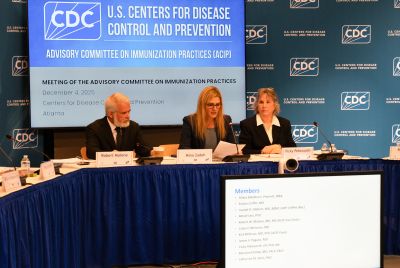Priyanka Chaturvedi: UK Expert on Why Concierge Medicine is the Key to the Future of Healthcare
How HealthClic Founder Priyanka Chaturvedi Is Redefining Elite Healthcare with Trust, Precision Medicine, and Preventive Care

Healthcare today is often defined by rushed consultations and reactive treatments, but Priyanka Chaturvedi is leading a movement to transform the patient-doctor relationship. As the founder and CEO of HealthClic, London's first concierge medicine practice, Chaturvedi has introduced an entirely new model of care to the UK —one rooted in trust, advocacy, and true preventive medicine.
With a family background steeped in medicine and a global perspective sharpened by her educational background, she recognised the urgent need for a more personalised and proactive healthcare experience. HealthClic has since become a trusted ally for ultra-high-net-worth individuals (UHNWIs) and leaders, offering bespoke medical care that feels like having a doctor in the family.
In this exclusive interview, Chaturvedi shares the inspiration behind founding HealthClic, her unique insights into the 'Trust Barrier' faced by UHNW patients, and her bold vision for the future of healthcare.
Q: As the founder of the first concierge medicine practice in London, what inspired you to introduce this model to the UK, and how do you see it evolving in the coming years?
Priyanka Chaturvedi: I had never heard of concierge medicine and wasn't initially looking into the healthcare sector. I grew up in a family of doctors, with both my parents being doctors, who chose to become primary care physicians. As a result, I learned much about the industry from a very young age. When I was a teenager, it hit me hard after a health-related incident that, without a doctor in the family, we wouldn't have gotten so lucky. That's when I realised my true passion.
I wanted to create a service where others could experience the feeling of having a doctor in the family, even if they don't. It was only at Cambridge Judge Business School that one of my mentors from the USA introduced me to the concept of concierge medicine and its growing popularity. I knew then and there that we had to bring this model to the UK so individuals could feel they had a health advocate even without having a doctor in the family. I was surprised that it wasn't offered in London, especially given how oversubscribed and overburdened many traditional Harley Street-style practices were, with wait times of 1-2 weeks for private appointments.
Q: You've coined the term 'Trust Barrier' to describe UHNW patients' unique challenges. Can you elaborate on this concept and how HealthClic addresses it to build client trust?
Priyanka Chaturvedi: Achieving the success of UHNW individuals is unimaginable to most, yet we usually only see the result. The journey demands immense sacrifices, often leading to isolation. By the time they have the freedom to enjoy meaningful relationships, distance, jealousy, and disconnection have taken root. Many UHNWIs encounter those driven by personal gain rather than genuine connection, making it rare to see beyond their public persona. As a result, trusting any service provider becomes difficult. In healthcare, open and honest communication is the essential first step to overcoming this deep-seated 'Trust Barrier.'
Concierge doctors MUST be completely unbiased and unaffiliated with any large medical institution or hospital. Otherwise, conflicts of interest arise, eroding trust. Instead of referring you to the best specialists for your needs, they may steer you toward affiliated institutions, compromising the quality of your care. You need to feel your concierge doctor has your best interests at heart, and of course, knowing that your doctor isn't making money each time they come to see you goes a long way, too. The membership model of concierge medicine truly incentivises them to do their best for you.
This is the first step to building trust. Our concierge doctors also serve as health advocates, engaging in meaningful, unlimited discussions with patients, reviewing specialist appointments, considering second opinions, and evaluating next steps, such as surgery. These open, unbiased conversations deepen trust and show that the doctor is committed to giving honest advice when it matters most.
Q: HealthClic was among the first to integrate whole genome sequencing into its practice. How has this technology impacted patient care, and what other innovations do you foresee integrating into your services?
Priyanka Chaturvedi: Whole-genome sequencing has been transformative for disease prevention. When we adopted it nine years ago, the US company we partnered with noted that leading London practices weren't excited about it.
To me, it's a patient's 'blueprint,' revealing possible hereditary risks before lifestyle factors come into play. Empowering patients and doctors to monitor these risks early has significantly improved care. Sequencing results often align with existing symptoms and help our doctors diagnose conditions earlier by understanding each patient's unique genetic profile.
Understanding your risks can give you and your physician a powerful tool for making smarter choices, and this is truly precision medicine in action. Other innovations that we are starting to adopt now include using AI to help doctors obtain fast reports in point-of-care testing/handheld devices. However, this is still in the early phases, although it has much potential to streamline our member patients' experience.
Q: Your emphasis on preventative medicine is notable. How can this approach transform healthcare delivery, especially for high-profile individuals and leaders?
Priyanka Chaturvedi: We are in a world modelled around 'sick care', which is ridiculous when you think about it. To truly have a preventative approach and transform healthcare delivery, a model where patients pay when they see you is an obstacle. You don't want to disincentivise patients from seeing you when they are well or in the early stages. In the traditional healthcare delivery model, patients typically see a doctor when they are already ill or several days into an illness, which can sometimes be too late for the best outcome.
A membership model like concierge medicine resolves this conflict and empowers patients to reach out and have meaningful discussions with their doctor about their health, even if it isn't an urgent health concern. Patients may even reach out to their doctor to discuss a study or new test they've seen online.
This transforms care, particularly when you have a patient-to-doctor ratio like ours, which is 50 families to 1 physician. It transforms care for high-profile individuals and leaders because we are the ones chasing them to book their annual health check-ups, follow-up consultations or even blood tests – their teams don't have to hunt around trying to find a doctor who can accommodate them (which traditionally leads to disjointed care for UHNW individuals). Even better, we have no additional financial gain when we book them in for a routine follow-up, as they have a single annual membership fee.
Q: With HealthClic's reputation as a premier concierge medicine service, are there plans for international expansion or collaborations? How do you envision HealthClic influencing global healthcare trends?
Priyanka Chaturvedi: We hope to serve our members beyond the UK very soon. I feel this will be pivotal in helping us solve the problem of 'disjointed care', which is all too familiar in the UHNW community. Collaboration-wise, I am passionate about working with reputable service providers in the booming wellness industry. Let's not mess around – many fads are trending in this emerging industry (which our clients know all too well – some have even been taken advantage of!), We must bridge the gap between medical care and wellness for ultra-high-net-worth individuals (UHNWIs).
The medical industry traditionally hasn't given enough attention to nutrition, fitness and mental wellbeing, and one of the biggest challenges in ageing well is preventing age-related muscle loss, or sarcopenia, which can often lead to many other health issues and conditions. Focusing more attention on these key areas and addressing the root causes of health issues, rather than relying solely on medication to mask them, is how I envision HealthClic influencing healthcare trends and inspiring positive change in the industry.
Q: What do you predict will be the most significant challenges and opportunities for concierge medicine in the next decade, and how is HealthClic positioned to address these changes?
Priyanka Chaturvedi: The market for concierge medicine is estimated to reach nearly US $38 billion by 2031, and there are significant opportunities here. This is not only in the UHNW sector but also, particularly in the US, in the middle-class market. You only have to glance at emerging trends and discussions on social media and high-profile podcasts to see that people are increasingly curious about health, wellness and prevention.
Evidence-based functional medicine is an emerging trend in the industry, presenting a challenge to its legitimacy, as not all areas of this field are trustworthy. However, we must adapt to the times. Medicine isn't about prescribing pills anymore; patients want to delve deeper and protect their health and their legacy, and it's our duty as concierge practices to help support this in a safe, modern way, which builds a lifetime of trust in healthcare and 'wellness care' – no longer 'sick care'.
© Copyright IBTimes 2025. All rights reserved.





















